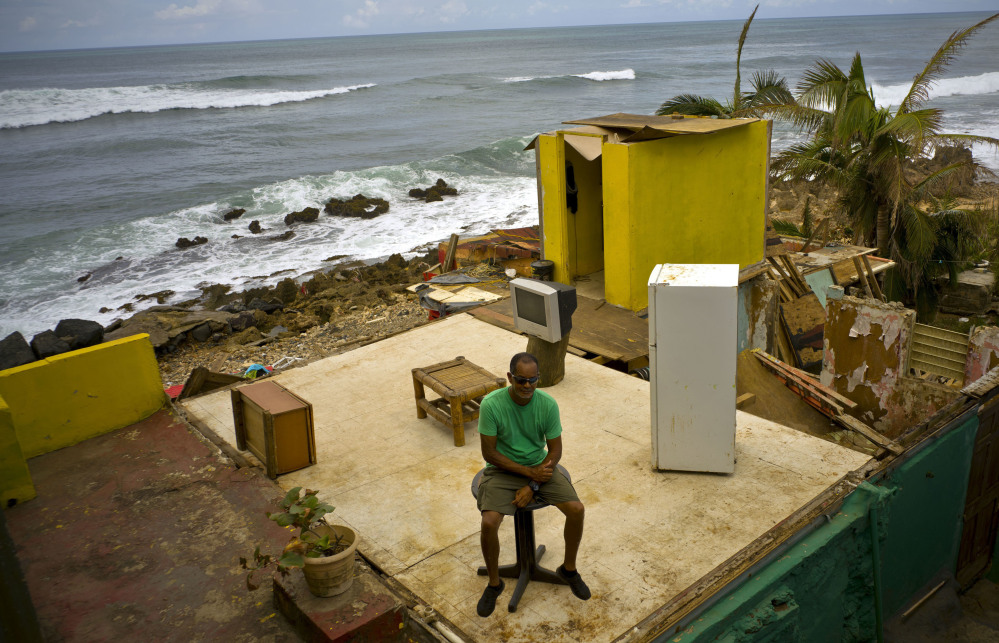SAN JUAN, Puerto Rico — Within a week of Hurricane Harvey slamming into the Texas coast, Virginia had dispatched a 14-person urban search-and-rescue team, a 17-person team to save people trapped by flood waters, and a National Guard team with 40 soldiers and seven helicopters.
But in the two weeks since Hurricane Maria devastated Puerto Rico, Virginia had sent just a single person though an interstate compact for managing disaster response. His job: helping the island coordinate its requests for aid to other states.
Critics have focused on the pace of federal aid reaching Puerto Rico. But states – a significant source of disaster assistance – also took far longer to dispatch equipment and personnel to the island after Maria than to Texas or Florida after Harvey and Irma, prolonging the suffering of Puerto Rico’s residents.
State officials say Puerto Rico was slow to ask for or accept assistance – a charge the commonwealth governor disputes, saying Maria proved more powerful than expected and that he acted appropriately. There were also worries how the bankrupt island would reimburse the states as required by the compact. Assistance began moving after the federal government agreed – six days after the storm – to foot the bill for the recovery.
“There were some concerns” about Puerto Rico’s ability to repay the states, said Mike Sprayberry, president of the National Emergency Management Association, a group of state disaster-response coordinators.
Puerto Rico was slower than Texas or Florida to make its first formal request to EMAC for help from other states. Texas first requested help on the day that Harvey smashed into the coast northeast of Corpus Christi. Florida was even faster, making its first request six days before Irma made landfall.
Puerto Rico officials didn’t make their first formal request for interstate assistance until Sept. 21, the day after Maria struck.
Puerto Rico Gov. Ricardo Rossello defended the timing of the request, saying it took time to appreciate the extent of the devastation.
Once that was clear, Rossello said his office “asked for EMAC, and asked for them quickly.”
Like Virginia, Pennsylvania was quick to announce assistance for Texas and Florida. But it wasn’t until a week after Maria that Pennsylvania sent help to Puerto Rico through the compact.
New Jersey sent a search-and-rescue team to Texas two days after Harvey made landfall through an appeal outside of EMAC. Two days before Irma struck the Florida Keys, New Jersey sent 134 National Guard soldiers to the state. Yet it took New Jersey nine days after Maria before it sent personnel to Puerto Rico through EMAC.
Massachusetts announced assistance for Florida through the interstate compact on the same day that Irma hit. By comparison, it took nine days before the state announced its first assistance for Puerto Rico.
When asked about the discrepancy, each state had the same response: They can’t send what Puerto Rico hasn’t asked for.
During the week before Irma made landfall and the two weeks afterward, Florida made 115 specific requests for EMAC. Texas made 90 such requests in the corresponding period around Harvey.
Puerto Rico has made 49 requests so far, two weeks after the storm hit the island.
Copy the Story LinkSend questions/comments to the editors.



Success. Please wait for the page to reload. If the page does not reload within 5 seconds, please refresh the page.
Enter your email and password to access comments.
Hi, to comment on stories you must . This profile is in addition to your subscription and website login.
Already have a commenting profile? .
Invalid username/password.
Please check your email to confirm and complete your registration.
Only subscribers are eligible to post comments. Please subscribe or login first for digital access. Here’s why.
Use the form below to reset your password. When you've submitted your account email, we will send an email with a reset code.